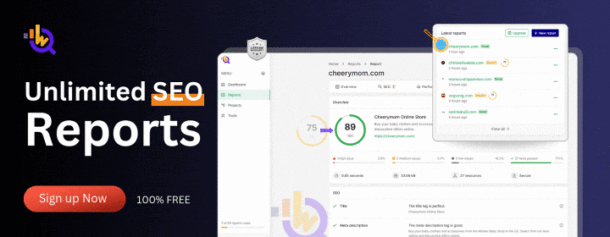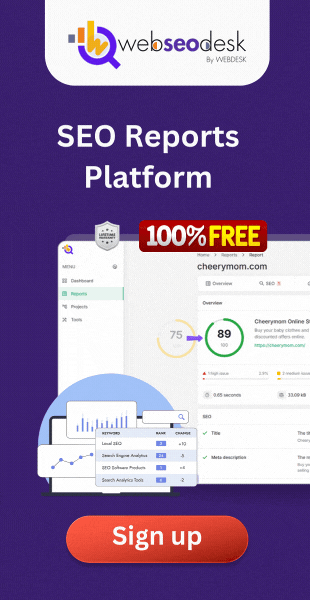Novices in SEO can quickly master the basics with this perfect guide, packed with easy-to-follow tips and strategies. Learn how to optimize your website, improve search rankings, and drive more traffic effectively.
Search engine optimization, or SEO, is the technique of making a website or web page more visible on search engine results pages (SERPs). SEO is bec
becoming a basic component of online marketing in the competitive digital environment of today. For novices, knowing the fundamentals of SEO can revolutionize their online presence development. We will dissect the key components of SEO in this comprehensive book, providing simple, follow-through advice that will direct you toward SEO success.
Describe SEO.
Search engine optimization, or SEO for short, is the process of improving many facets of a website to appeal better to search engines such as Google, Bing, or Yahoo. By doing SEO on your website, you are basically enabling search engines to know what your site is about and whether it is pertinent to a user’s query. The higher your chances of ranking at the top of search results and simpler access for possible people to find your material, the better your SEO.
Why is SEO crucial?
SEO is absolutely important since it immediately influences your search engine results and visibility, thereby influencing your website traffic. Usually starting with a search engine query, most online encounters start on your website, and thus appearing on the first page of results would greatly boost its visibility. According to studies, the first page’s top few results get the most hits; the first position accounts for roughly thirty percent of all the clicks. SEO is therefore a long-term plan with great results like increased natural traffic, higher conversion rates, and brand credibility enhancement.
Essential SEO Components
Every novice should concentrate on three primary pillars of SEO to raise ranks:
- On-Page SEO
On-page SEO is the direct technique you use on the pages of your website to enable search engines to grasp the information. On-page SEO’s main objective is to maximize your website’s structure and content such that it relates to user search queries. Here are some important elements to give on-page SEO top attention:
Research and incorporate pertinent keywords in your work that users would look for. Keywords should be positioned deliberately in your headers, title tag, and all across your work.
Excellent content that addresses user questions or solves problems will automatically draw more visitors. Make sure your material is original, skillfully written, and instructive.
Title tags and meta descriptions give a quick synopsis of the material on your page. Helping search engines and consumers to know what the page is about depends on including pertinent keywords in these components.
Linking to other pages inside your website keeps people engaged longer by pointing them to other content they could find helpful and helps search engines index your site more efficiently.
- off-page SEO
Off-page SEO is the process of enhancing the authority and reputation of your website by outside means. Unlike on-page SEO, off-page SEO is about activities outside of your website influencing your rankings. Off-page SEO mostly depends on backlinks—links from other websites referring to your site. These backlinks serve as signals to search engines that your content is reputable and valuable, thereby serving as endorsements.
Guesting on credible blogs and websites will help you create backlinks.
Get included in directories tailored to your sector.
Share your material on social media to raise its possibilities of being connected by others.
- Technical SEO
Technical SEO is the backbone of your website’s tweaks meant to raise search engine crawling and indexing. Although both on-page and off-page SEO are crucial, technical SEO is just as crucial for guaranteeing that your website runs properly and is easily navigable. Important facets of technical SEO consist of:
Slow-loading websites can produce bad user experiences and increased bounce rates. Google ranks websites considering site performance; hence, reducing loading times is quite important.
Having a mobile-friendly website is absolutely essential given the rising use of mobile devices for browsing. Google ranks websites depending on their mobile version first using mobile-first indexing, therefore guiding its decisions.
An XML sitemap is a file listing all the pages on your website so that search engines may more quickly find and index them.
Google likes safe websites; hence, make sure yours employs HTTPS encryption to help safeguard user data and increase confidence.
Beginners’ Best SEO Practices
There are various best practices you might implement as a novice to enhance your SEO output:
Identify the keywords you wish to rank first for keyword research. Finding pertinent keywords for your niche can be accomplished with tools including Google Keyword Planner, Ahrefs, and SEMrush. Pay attention to long-tail keywords—more exact phrases that rank more easily.
Write material with actual value and user requirements addressed in mind. Attracting natural traffic, raising involvement, and developing industry authority all depend on quality content.
A website with simple calls to actions (CTAs), fast loads, and easy navigation will improve the user experience, hence lowering bounce rates and raising your ranking.
Google Analytics, Google Search Console, and Ahrefs are among the SEO tools available to measure performance, monitor your ranks, and point out areas needing work.
- Stay Updated:
Search engines changing their algorithms causes SEO to change regularly. Maintaining your website’s competitiveness depends on keeping yourself updated about the newest SEO trends and best practices.
Result
Although SEO seems complicated at first, you may start properly optimizing your website by separating it into reasonable components—on-page, off-page, and technical SEO. Following SEO best practices, establishing backlinks, enhancing site performance, and concentrating on quality content will help you to get better ranks in search engines and more natural visitors to your website. Remember as a novice that SEO is a long-term plan needing persistence, patience, and ongoing education. SEO may grow to be a very effective tool in reaching your online company objectives with time, work, and devotion.












0 Comments